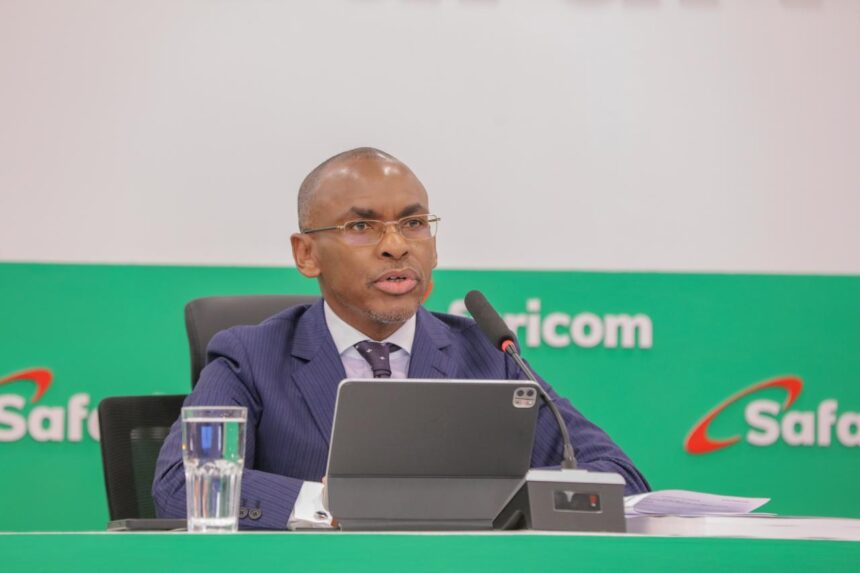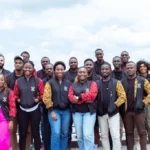Meta, the US-based technology giant behind Facebook, Instagram, and WhatsApp, has chosen Safaricom, Kenya’s largest telecom operator, as its local landing partner for a new submarine cable connecting Oman and Kenya.
The partnership marks a pivotal moment for both companies, underscoring East Africa’s growing role in the global digital infrastructure ecosystem.
The $23 million “Daraja” system, fully funded by Meta’s subsidiary Edge Network Services, is designed with 24 fibre pairs to deliver high-capacity, low-latency connectivity between East Africa and the Middle East.
“This deal is a significant strategic milestone for us at Safaricom as we mark 25 years and signals our readiness to transition into a fully-fledged tech company in line with our vision 2030 strategy,” said Peter Ndegwa, CEO of Safaricom.
What You Should Know
According to Safaricom, the new Oman–Kenya link complements Meta’s 2Africa cable, a 45,000-kilometre undersea network that is currently the world’s longest submarine system.
Designed to encircle the African continent, 2Africa aims to deliver faster and more resilient internet across 32 landing points in Africa.
By creating a route that bypasses the congested Red Sea corridor, Safaricom said the Daraja system enhances connectivity stability and reduces latency for East African users. The 2Africa project reached Lagos and Kwa Ibo in southeastern Nigeria in November 2023 and continues to expand across the continent.
For Meta, the project bolsters the reliability and speed of its regional operations, while for Safaricom, it represents a historic first, direct control over international data capacity. This transition from bandwidth leasing to infrastructure ownership marks a major milestone in Safaricom’s transformation journey.
What This Means
Under the agreement, Safaricom will operate the Kenyan landing station and manage the domestic infrastructure associated with the cable. This gives the company ownership of a vital segment of Kenya’s internet backbone, an asset that supports its broader goal of evolving from a telecom operator to a digital services and technology company.
“It positions us to meet the surging demand for high-capacity, low-latency connectivity which is critical for powering economic growth, cloud adoption, and digital innovation,” Ndegwa said.
The new infrastructure provides Safaricom with the backbone needed to scale its next growth engines. With voice revenue growth plateauing, the company has shifted its strategic focus toward M-PESA and data services, which grew by 15.2% and 16.5%, respectively, in the 2025 fiscal year.
The company said the cable is expected to accelerate its enterprise and cloud market ambitions, offering improved bandwidth reliability and enabling local data hosting for corporate clients, a critical component for Kenya’s expanding digital economy.
Reinforcing Kenya’s Role as a Regional Hub
According to industry experts, the Oman–Kenya corridor also deepens trade and digital ties between East Africa and the Middle East, strengthening Kenya’s status as the region’s primary connectivity hub.
The added capacity is likely to attract global cloud and content providers, reinforcing Nairobi and Mombasa’s appeal as gateways for digital investment.
Africa led the world with the most rapid growth in international internet bandwidth, expanding at a compound annual rate of 38% between 2021 and 2025.
With Safaricom already commanding about 65% of Kenya’s mobile market, the deal could further widen its lead, putting pressure on rivals Airtel and Telkom Kenya to explore alternative technologies such as low-Earth-orbit satellite systems.
Analysts say the partnership between Meta and Safaricom reflects the next phase of Africa’s digital transformation, where local operators evolve into global infrastructure players, and global tech giants localise their investments for regional resilience.
Talking Points
The partnership between Meta and Safaricom marks a defining moment for East Africa’s digital infrastructure, positioning Kenya as a key player in the global data network ecosystem.
It is significant that Meta chose Safaricom to manage the local landing of the $23 million Oman–Kenya “Daraja” submarine cable. This move gives Safaricom direct control over international capacity for the first time, shifting it from a bandwidth lessee to an infrastructure owner.
At Techparley, we see this collaboration as more than just a connectivity upgrade, it is a strategic alignment of interests.
The new cable is expected to enhance network speed, reliability, and data flow across East Africa, boosting Kenya’s role as a digital and trade hub. It will also support emerging markets like cloud services, fintech, and digital commerce that depend on high-capacity, low-latency connections.
With the right execution, the Daraja project could redefine Africa’s digital resilience and position Safaricom as a continental tech infrastructure leader.
——————-
Bookmark Techparley.com for the most insightful technology news from the African continent.
Follow us on Twitter @Techparleynews, on Facebook at Techparley Africa, on LinkedIn at Techparley Africa, or on Instagram at Techparleynews.






